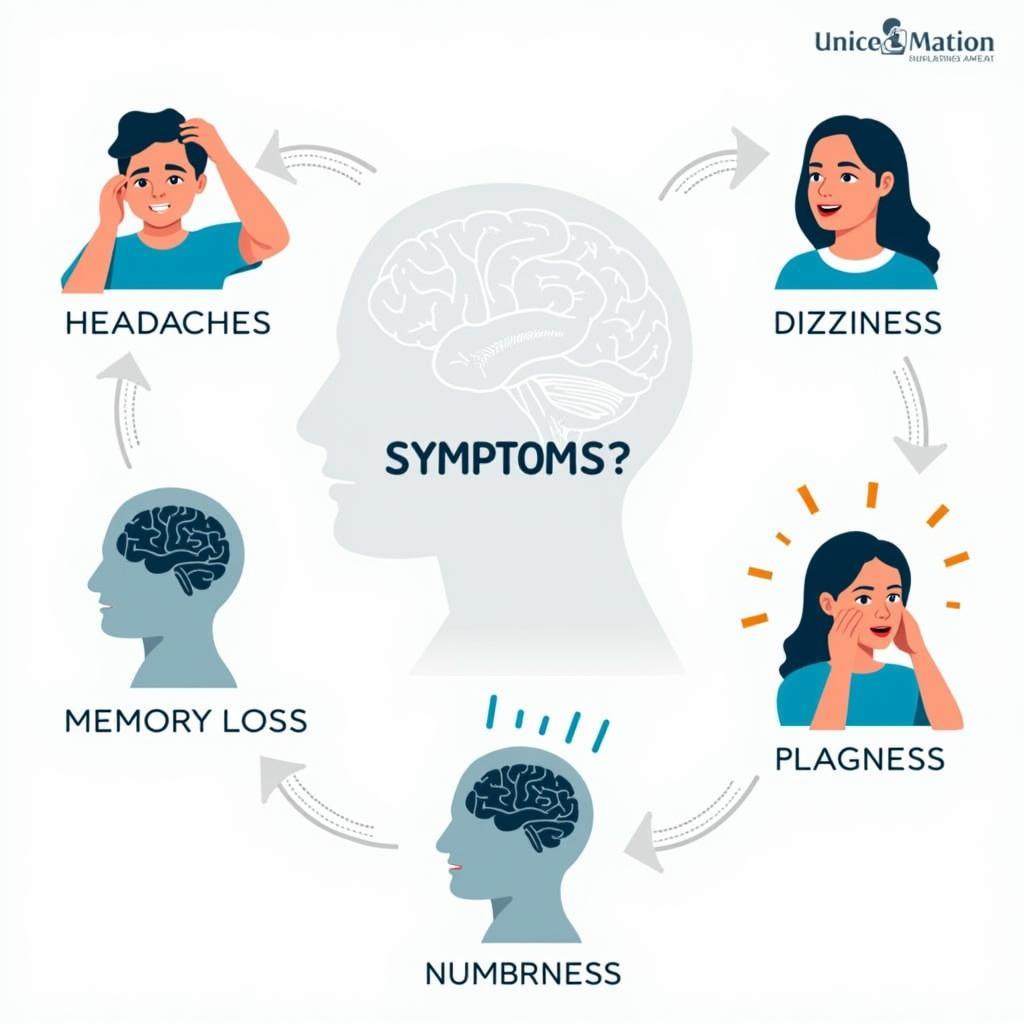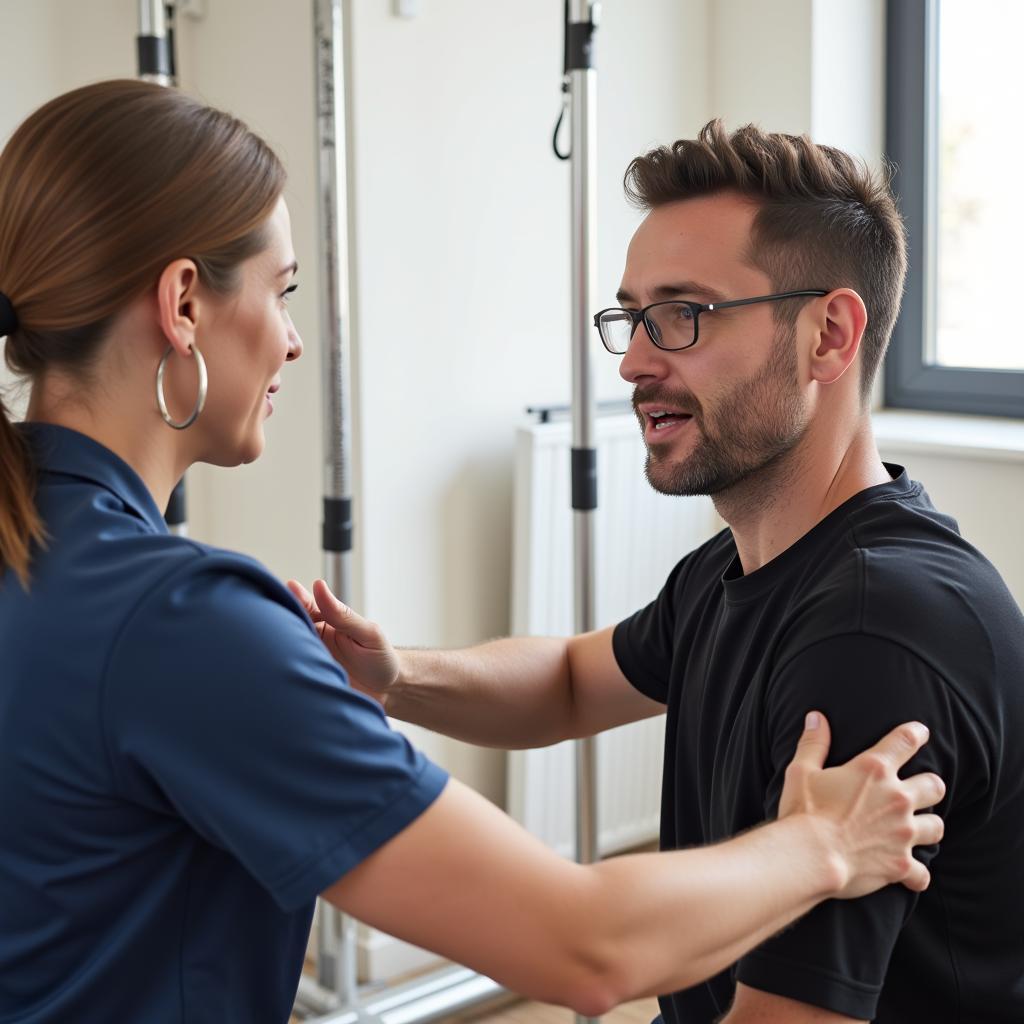Neurological problems after a car accident can be devastating, impacting every aspect of a person’s life. Within seconds, a seemingly minor collision can trigger a cascade of neurological issues, from debilitating headaches to life-altering cognitive impairments. Understanding the potential neurological consequences of a car accident is crucial for both victims and their families, as well as for legal professionals and healthcare providers.
 Common Symptoms of Neurological Problems After Car Accident
Common Symptoms of Neurological Problems After Car Accident
Understanding the Impact: Common Neurological Problems After Car Accidents
Car accidents, even those considered “minor,” can cause a range of neurological problems due to the sudden forces exerted on the body. These forces can lead to concussions, whiplash, and other traumatic brain injuries. Common neurological problems after a car accident include headaches, dizziness, memory loss, difficulty concentrating, and numbness or tingling in the extremities. The severity of these symptoms can vary greatly, and some may not appear immediately after the accident. Delayed onset of symptoms can make diagnosis and treatment more challenging. This is why seeking medical attention after any car accident, even if you feel fine initially, is crucial. Don’t underestimate the potential long-term consequences.
What are some of the challenges self-driving cars must overcome? Read more about it on our problems self driving cars must solve page.
Recognizing the Signs: How to Identify Potential Neurological Issues
Recognizing the signs of neurological problems is vital for prompt intervention and effective treatment. While some symptoms, like loss of consciousness or severe headache, are obvious, others can be more subtle. Changes in mood, sleep patterns, or cognitive function can also indicate underlying neurological issues.
- Headaches: Persistent or worsening headaches after a car accident can be a sign of concussion or other brain injury.
- Dizziness and Vertigo: Feeling unsteady or experiencing a spinning sensation can be related to inner ear damage or neurological dysfunction.
- Memory Problems: Difficulty recalling events surrounding the accident or experiencing short-term memory loss can indicate a concussion.
- Cognitive Changes: Difficulty concentrating, making decisions, or processing information can be signs of a more serious brain injury.
 Neurological Examination After a Car Accident
Neurological Examination After a Car Accident
Long-Term Effects: Living with Neurological Problems After a Car Accident
The long-term effects of neurological problems after a car accident can be profound, impacting a person’s ability to work, maintain relationships, and enjoy life. Chronic pain, cognitive impairments, and emotional challenges can significantly reduce quality of life.
“Neurological problems following a car accident can manifest in various ways, from subtle cognitive changes to severe physical impairments. Early diagnosis and comprehensive treatment are essential for maximizing recovery,” says Dr. Sarah Miller, a neurologist specializing in traumatic brain injuries.
Treatment Options and Recovery Strategies
Fortunately, various treatment options are available for neurological problems after a car accident. These include medication, physical therapy, occupational therapy, and cognitive rehabilitation. The specific treatment plan will depend on the individual’s injuries and symptoms. Recovery can be a long and challenging process, requiring patience, persistence, and a strong support system.
Have you considered the ethical dilemmas faced by self-driving cars? Learn more on our self-driving car trolley problem page.
“The recovery journey from neurological injuries is unique to each individual. A multidisciplinary approach involving medical professionals, therapists, and family support is crucial for optimal outcomes,” adds Dr. Michael Carter, a rehabilitation specialist.
 Neurological Rehabilitation Therapy After Car Accident
Neurological Rehabilitation Therapy After Car Accident
Neurological Problems After Car Accident: Seeking Legal Assistance
If your neurological problems are the result of someone else’s negligence, you may be entitled to compensation for your medical expenses, lost wages, and pain and suffering. Consulting with a personal injury attorney who specializes in car accident cases can help you understand your legal rights and options.
Self-driving cars present several technical challenges. Explore some of these issues on our page about technical problems with self driving cars.
Conclusion
Neurological problems after a car accident can have significant and lasting consequences. Understanding the potential neurological effects, recognizing the signs, and seeking appropriate medical and legal assistance are crucial steps in navigating the challenges and maximizing recovery. For further assistance and support, connect with us at AutoTipPro. Our phone number is +1 (641) 206-8880, and our office is located at 500 N St Mary’s St, San Antonio, TX 78205, United States. We also encourage you to explore our resources on the automated cars trolley problem and the 7 problems with self driving cars.





Leave a Reply